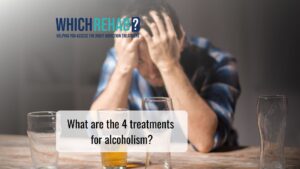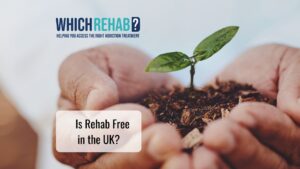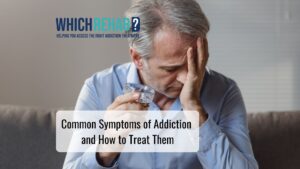In the realm of substance abuse, understanding the stages of addiction is vital to recognising the signs and seeking appropriate help.
Addiction is not a fixed condition. It progresses through various stages with distinct characteristics. This article aims to shed light on the stages of addiction and their impact on mental health and overall well-being. By exploring the different stages, we’ll help you gain a deeper understanding of the addiction cycle, the risks involved, and the path to recovery.
Recognising the stages of addiction is crucial for seeking timely intervention. Mental health services, treatment programs, and 12-step programs can support individuals in their recovery journey.
By understanding the progression of addiction, individuals and their loved ones can actively intervene at an earlier stage, helping pave the way for a healthier, substance-free future.
What is addiction?
Addiction is a condition characterised by a loss of control over a substance or activity, despite its negative consequences. Classed as a mental illness, it’s a chronic disease that can damage physical and mental health, relationships, and overall well-being.
Individuals struggling with addiction often find it extremely challenging to quit or reduce their use, even when they are aware of the harm it causes. They experience intense cravings for their substance of choice or destructive activity and may engage in addictive behaviours to obtain it. This can lead to an increasing tolerance, where larger amounts of the substance or activity are needed to achieve the same pleasurable feeling.
One of the key characteristics of addiction is the presence of withdrawal symptoms when the substance is not used. These physical and psychological symptoms of withdrawal can range from mild discomfort to severe illness, depending on the substance and the individual’s dependence.
Addiction also involves a loss of control over one’s actions. Individuals may engage in risky behaviours, experience legal consequences, or suffer from adverse physical and mental health effects.
It is important to recognise addiction as a chronic disease that requires specialised treatment programs. There are various stages of addiction and recovery, and seeking help from mental health services and treatment programs can be critical in addressing the underlying issues and achieving lasting recovery.

The Stages of Addiction
No matter the type of addiction, the stages follow a similar pattern. Here we’ll explore the various stages of addiction, from the initial experimentation to the cycle of dependence.
We will also delve into the physical, psychological, and social aspects of addiction, as well as the negative consequences that can arise from prolonged substance misuse.
1. Initiation to the substance or behaviour
Initiation of a substance or behaviour is the first step in the stages of addiction. It can vary from person to person, but generally involves the first use of drugs or alcohol, or a first-time experience with a type of behaviour, like gambling, sex or porn.
There are several ways in which a substance or behaviour can be introduced into someone’s life.
Family history plays a significant role in the initiation of addiction. When there is a history of behavioural or substance abuse within a family, individuals may be more genetically predisposed to developing addictive tendencies. Additionally, being exposed to substance use at an early age within the family can normalise and increase the likelihood of experimentation.
Peer pressure is another common factor in initiation. Many individuals try drugs or alcohol for the first time due to the influence of their friends or peers. The desire to fit in or be accepted often leads to curiosity and experimentation. The same applies to many behavioural addictions, such as gambling addictions.
Self-medication is another major contributing factor to substance initiation. Some individuals turn to drugs or alcohol as a way to cope with mental health conditions or to alleviate negative emotions. The pleasurable feelings or temporary relief experienced can reinforce the behaviour and lead to addiction over time.
It’s important to note that certain risk factors can increase the likelihood of addiction initiation. These include a history of substance abuse in the family, mental health conditions, lack of social support, low self-esteem, and a history of trauma.
2. Experimentation and initial use
In the early stages of addiction, after initiation individuals often enter a phase of experimentation and initial use. This stage is characterised by curiosity and the desire to try the addictive substance or behaviour for the first time. People may be enticed by the positive stories they have heard from others or the thrill of exploring something new.
During experimentation, individuals may be driven by a sense of curiosity and adventure. They may want to see what it feels like to engage in addictive behaviour or experience the effects of the substance. There is often a sense of anticipation and excitement surrounding the initial use.
The first experiences with an addictive substance or behaviour can be both exhilarating and pleasurable. The substance may produce a euphoric feeling, while engaging in the behaviour may provide a sense of escape or reward. These initial pleasurable feelings can reinforce the desire to continue using or engaging in the addictive substance or behaviour.
It is important to note that not everyone who experiments with an addictive substance or behaviour will progress to a state of addiction. However, for some individuals, the excitement and pleasurable effects experienced during experimentation can set the stage for repeated use and the development of a substance use disorder or addictive behaviour.
It is crucial to be aware of the early signs of experimentation and initial use to help identify individuals who may be at risk of developing addiction.
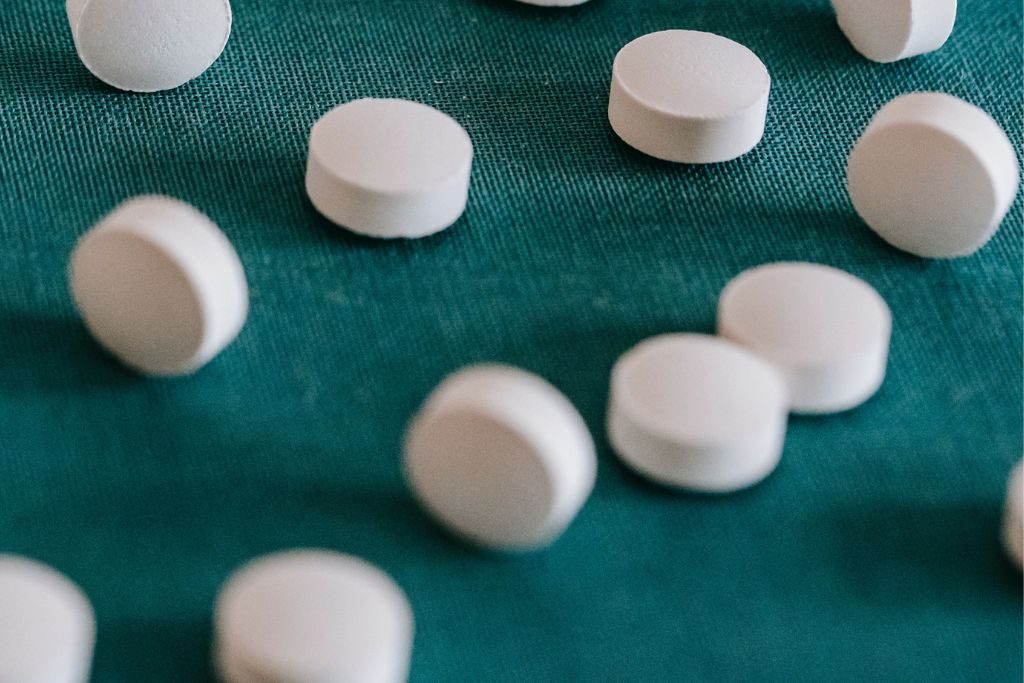
3. Abuse
The third stage of addiction is abuse. During this stage, the individual continues to use the substance in order to achieve a heightened effect and escape from reality.
As the abuse intensifies, the individual may start using higher doses of the substance, leading to an increased risk of developing a substance use disorder. This can potentially lead them to move on to harder drugs in search of a more powerful and pleasurable feeling.
Interestingly, some individuals may start using prescription drugs as a form of self-medication. This means that drug use becomes a part of their lifestyle as they rely on the substance to cope with underlying mental health conditions or to self-medicate symptoms. This pattern of self-medication can further intensify the addiction, making it more difficult for the individual to break free from its grip.
It is important to remember that addiction is a chronic disease that affects both the physical and mental health of the individual. Seeking help from mental health services and treatment programs is crucial in order to address the underlying issues contributing to the addiction and to provide support during the recovery process.
The abuse stage is a crucial turning point in the addiction cycle. If you’re worried that you’re starting to become more reliant on a substance or activity, or you’re watching someone you love fall into these traps, reach out for help today. You’re not alone, our dedicated addiction support team are on hand to get you the help you need before your actions develop into addiction.
4. Tolerance: Understanding the Brain Changes in Addiction
Tolerance plays a significant role in shaping an individual’s relationship with substances or addictive behaviours. Tolerance refers to the brain’s response to repeated exposure to a substance or behaviour, leading to diminished effects over time. This phenomenon occurs due to the brain’s incredible adaptability, altering its chemistry to maintain balance in the face of sustained stimulation.
Physiologically, as addiction progresses, the brain starts to lose chemical receptors, making it less sensitive to the substance’s pleasurable effects. Additionally, the production of dopamine, a neurotransmitter associated with reward and pleasure, may decrease, reducing the intensity of the euphoric sensations experienced.
Due to these changes, individuals with tolerance find themselves needing higher dosages or engaging in addictive behaviour more frequently to achieve the desired effects. This compels them to escalate their substance use or engage in riskier behaviours.
Understanding tolerance is crucial in comprehending the stages of addiction. As tolerance intensifies, it becomes increasingly challenging for individuals to control their substance use or behaviour. Not only does tolerance contribute to the physical and psychological dependence on the substance or behaviour, but it also elevates the risk of negative consequences, further entrenching the addiction cycle.
Recognising the impact of tolerance is essential in addressing addiction effectively. By understanding the brain’s adaptation process, treatment programs and mental health services administration can tailor interventions to target the specific challenges faced by individuals in each stage of addiction, facilitating a more comprehensive and successful recovery process.
5. Dependence
In the stages of addiction, the fifth and crucial phase is dependence. At this point, the individual becomes reliant on the addictive substance, experiencing both physical and psychological dependence.
Physical dependence occurs when the body adapts to the substance over a period of time. The brain and body become accustomed to the presence of the drug, causing changes in neural pathways and brain chemistry. If the drug use is abruptly stopped or reduced, withdrawal symptoms can occur. These symptoms may include physical discomfort, cravings, restlessness, and even flu-like symptoms.
Psychological dependence, on the other hand, is when the individual believes they need the drug or alcohol to function normally. They may rely on it to cope with stress, boost their mood, or alleviate negative emotions. The substance becomes a crutch that they feel they cannot live without.
It is important to note that dependence can also manifest in behavioural addictions, such as gambling or excessive gaming. In these cases, the individual becomes psychologically reliant on the pleasurable feelings or rewarding effects of engaging in the addictive behaviour.
The stage of dependence is a critical turning point in addiction. It signifies that the individual’s relationship with the substance has evolved into a state of reliance. Recognising the signs of dependence is crucial for seeking help and beginning the journey towards recovery.
If you or someone you know is struggling with addiction, it is important to seek professional help. There are various addiction treatment programs and mental health services available to provide support and guidance on the road to recovery. Remember, addiction is a chronic disease, but with the right support and treatment, long-term recovery is possible. Get in touch with us today to get the support you need to break the cycle.
6. Addiction
Addiction is the stage in which control over one’s actions is relinquished to a substance or activity. At this point, a person becomes trapped in a vicious cycle, unable to quit even if they desperately want to.
During addiction, individuals are fully aware of the negative consequences and damage their actions are causing. They may witness their relationships deteriorating, experience adverse physical and mental health effects, and suffer from legal and financial problems. However, despite this awareness, they find themselves powerless to stop.
The grip of addiction is strong, as the substance becomes the main focus of their lives. Rational decision-making is clouded, and the person prioritises getting and using the substance, sometimes at the expense of other important aspects of their life. This loss of control deeply affects their relationships, work performance, and overall well-being.
It is important to understand that addiction is a chronic disease that requires professional help and support to overcome. Treatment programs, such as 12-step programs or dual diagnosis treatment, can offer the necessary tools to break free from the cycle of addiction. With the right support, individuals can regain control over their lives and work towards long-term recovery.

7. Recovery
Recovery from addiction is a challenging but ultimately rewarding process. It involves not only overcoming the physical dependence on an addictive substance or behaviour but also addressing the underlying factors that contribute to the addiction. Seeking help and support is crucial during this journey.
The recovery process often begins with an individual recognising the negative consequences of their addiction and making a commitment to change. This may involve entering into a treatment program, such as a rehabilitation centre or outpatient therapy, where individuals can receive professional help tailored to their specific needs. Additionally, support from friends, family, and peer support groups can play a vital role in providing guidance and encouragement throughout the recovery process.
Relapse is a common concern in addiction recovery. It is important to understand that setbacks do not indicate failure but rather offer an opportunity for learning and growth. Relapse can occur due to various factors, including triggers, stress, or unresolved trauma. Addressing trauma and mental health issues is a crucial part of the recovery journey, as they often contribute to the development and maintenance of addiction.
Finding addiction treatment resources can be challenging, but there are numerous strategies available to help individuals in need. Resources can include helplines, online forums, and directories of treatment centres. It is important to seek out reputable sources and consider options that align with an individual’s unique needs and circumstances.
For more info read our informational addiction blog to find out things like how much rehab costs, what the stages of alcohol rehab are and if you can get rehab on the NHS.
8. Relapse
Relapse is a very common stage in the addiction cycle. It is important to understand that relapse is not a sign of failure, but rather an indication that treatment needs to be adjusted. In fact, it is estimated that between 40% and 60% of people with addiction will experience a relapse at some point during their recovery journey.
There are several factors that may contribute to relapse. One of the main factors is inadequate initial treatment. If the initial treatment program does not address all the underlying issues and provide the necessary support, it can increase the risk of relapse. Another contributing factor is attempting to quit without help. Addiction is a complex disease, and trying to overcome it alone without professional assistance can be extremely challenging.
It is also important to note that relapse can occur even after long periods of sobriety. Addiction is a chronic disease, and just like with other chronic conditions, relapse can happen at any time. However, it is crucial to view relapse as a temporary setback rather than a complete failure.
When a relapse occurs, it is essential to seek immediate help and reassess the treatment plan. The individual may require additional support, changes in therapy approaches, or different medications to aid in their recovery journey. Adjusting the treatment plan can help address any underlying issues and prevent future relapses.
Interrupting the Cycle to Break Free from Addiction
Breaking free from addiction is a challenging journey, but it is possible with the right strategies and support. To interrupt the addiction cycle, regardless of the stage they are at, individuals must take proactive steps to address their substance use disorder effectively.
Seeking professional treatment is a crucial first step in interrupting the addiction cycle. Therapy and counselling provide individuals with the necessary tools to understand the underlying causes of their addiction and develop healthy coping mechanisms. These sessions offer a safe space to explore emotions, learn effective communication skills, and break destructive patterns.
Support groups play a vital role in addiction recovery. Connecting with others who have faced similar struggles provides a sense of belonging and understanding. These groups offer a platform to share experiences, gain insight, and receive peer support. Additionally, participating in support groups helps individuals realise they are not alone in their journey towards sobriety.
Making use of recovery resources is essential for long-term sobriety. This may include attending 12-step programs or other evidence-based treatment programs that address the specific needs of the individual. Learning techniques to manage cravings and triggers is crucial in interrupting the addiction cycle. By identifying and developing alternative coping mechanisms, individuals can effectively confront challenging situations without turning to drugs or alcohol.
Interrupting the addiction cycle is an ongoing process that requires commitment, strength, and perseverance. Seeking professional treatment, participating in therapy and counselling, joining support groups, and utilizing recovery resources are vital components in this journey towards a fulfilling, substance-free life. Remember, you are not alone, and there is support available to help you break free from the cycle of addiction.
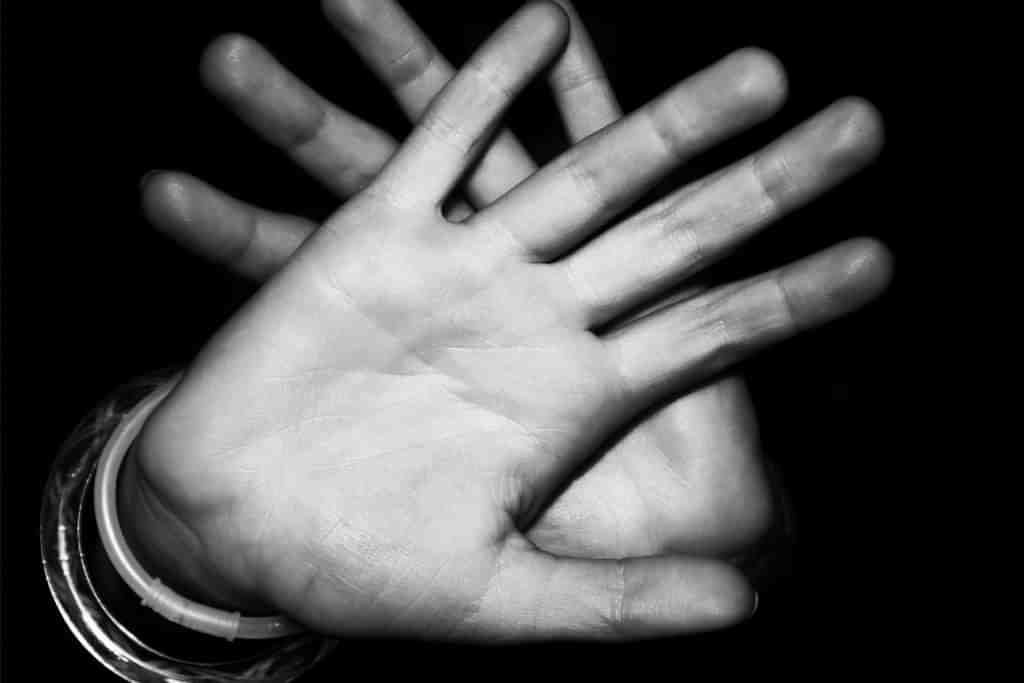
Find Addiction Treatment Near Me
If you or someone you know is struggling with addiction, it is important to seek help as soon as possible. Addiction is a chronic disease that can have severe physical, mental, and emotional consequences. Without proper treatment and support, it can be difficult to break free from the destructive cycle of addiction.
Fortunately, there are various options available for addiction treatment. Therapy, support groups, and treatment programs are all effective ways to address the underlying causes of addiction and learn coping mechanisms for a healthier, sober life. However, finding the right treatment option can be overwhelming, especially when you’re already dealing with the challenges of addiction.
At Which Rehab, we understand the importance of finding addiction treatment near you. We can help you navigate through the various rehab centers, therapy options, and support groups to find the best fit for your location and situation. Our experienced team is here to guide you through the process and provide you with the information and support you need to make the best decision for your recovery journey.
Don’t wait any longer to seek help for your addiction. Contact us today at Which Rehab and let us assist you in finding the addiction treatment that can help you regain control of your life.
Remember, you don’t have to face this alone – there is help and hope available.
Addiction FAQs
The stages of addiction can vary from person to person but typically involve a cycle of psychological dependence, physical dependence, and relapse. These can be broken down into the following stages:
- Initiation
- Experimentation
- Abuse
- Tolerance
- Dependance
- Addiction
- Recovery
- Relapse
The addiction cycle is the repetitive loop people suffering from addiction find them self in. It involves the stages or addiction detailed above, with relapse dropping the person back into the loop of addiction.
The addiction cycle can apply to all types of addiction, like alcohol addiction, drug addiction or behavioural addiction.
It’s extremely difficult to break the addiction cycle, and almost always requires professional support to be done effectively and safely.
You’ll need to take proactive steps to break the cycle, the first of which is seeking help. Get in touch with our empathetic team today to get free, confidential advice on how to break your addiction cycle.



